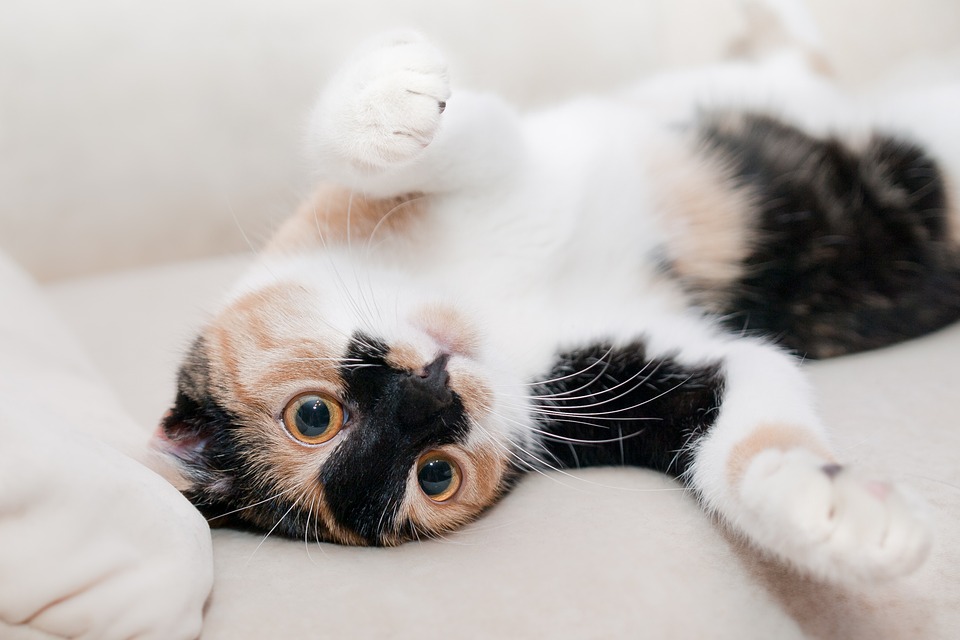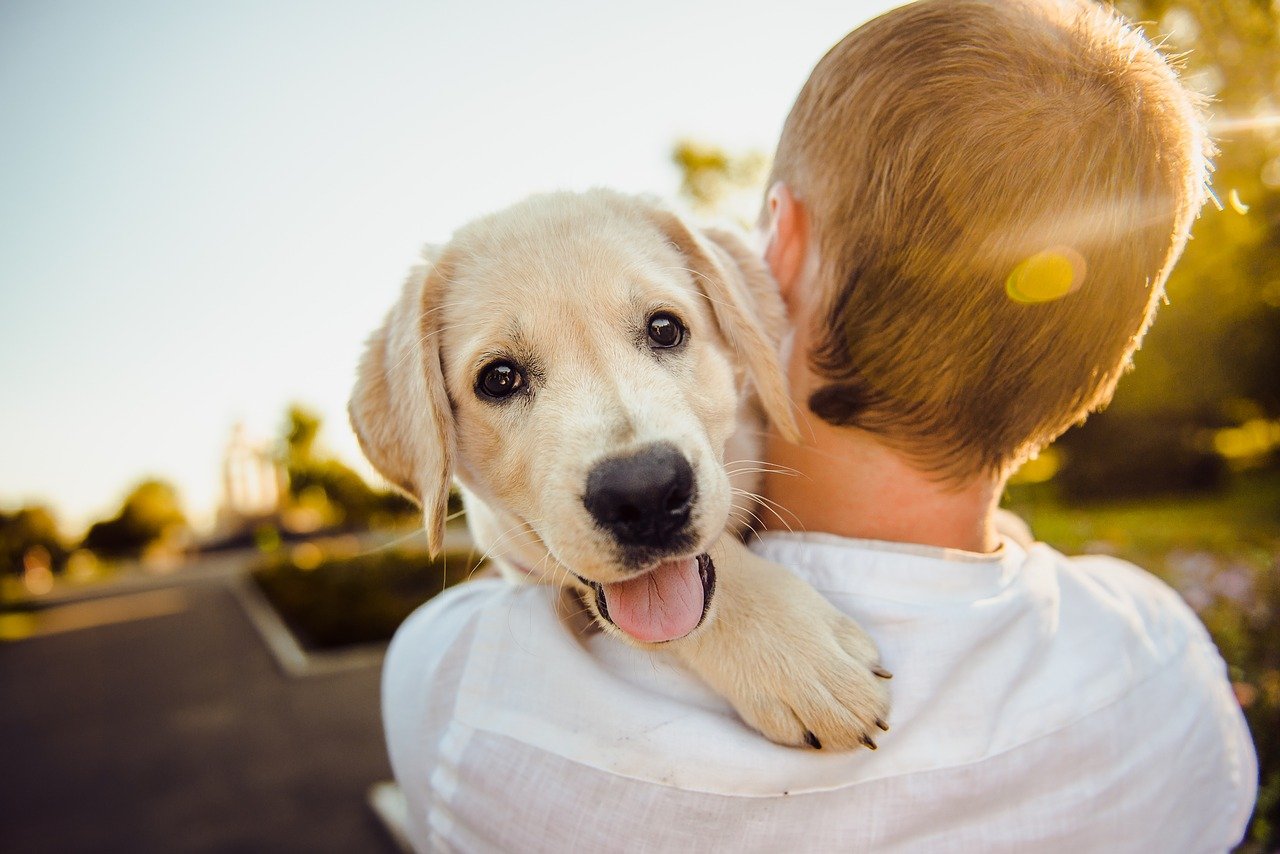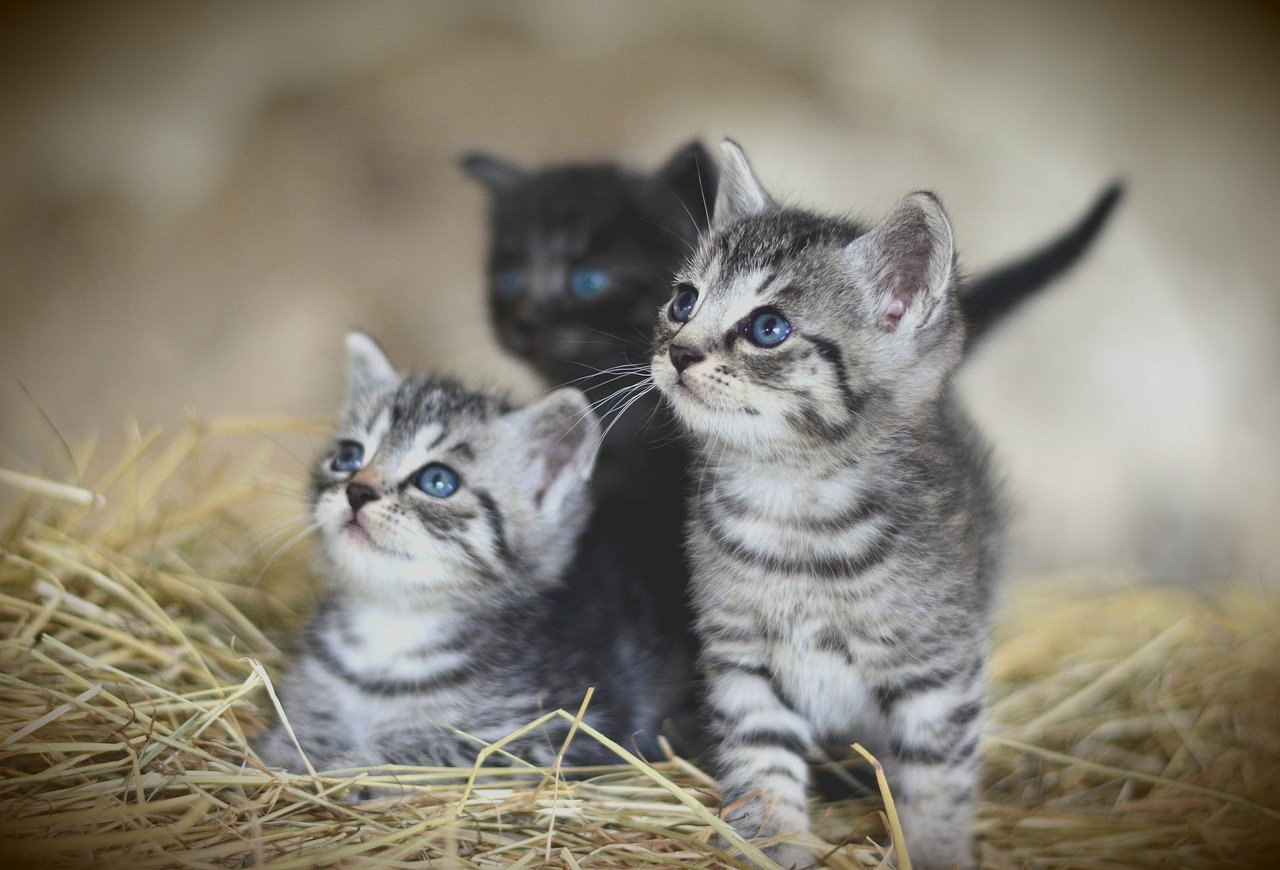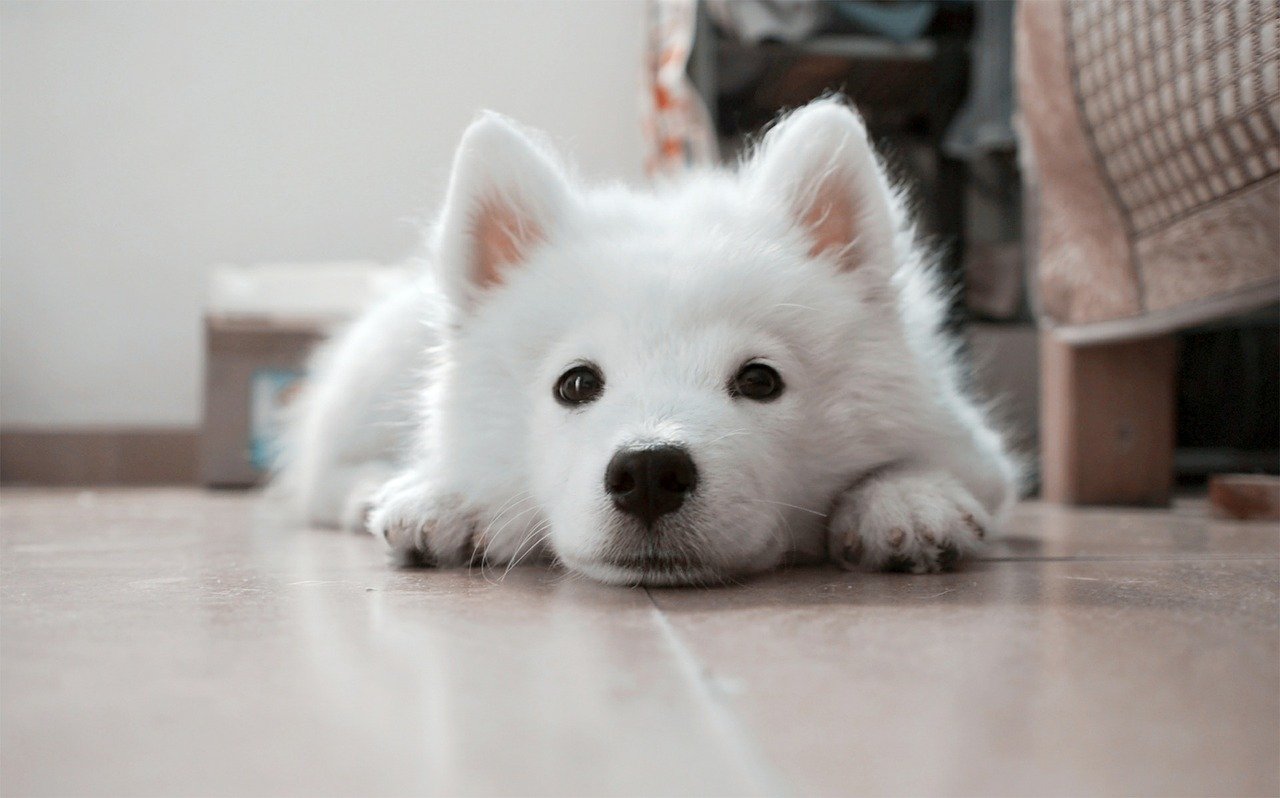Lovely Bichon Frise - Find Out How to Care for Bichons Frises
The Bichon frise is a medium-sized dog mostly associated with its curly hair. These dogs are distinct for their calm demeanor and attractive looks. The breed is a result of crossbreeding between the Maltese and the poodle. Bichons frises have been valued as companion dogs for years. What are they known for? What are their most prominent features? Find out by reading this article.
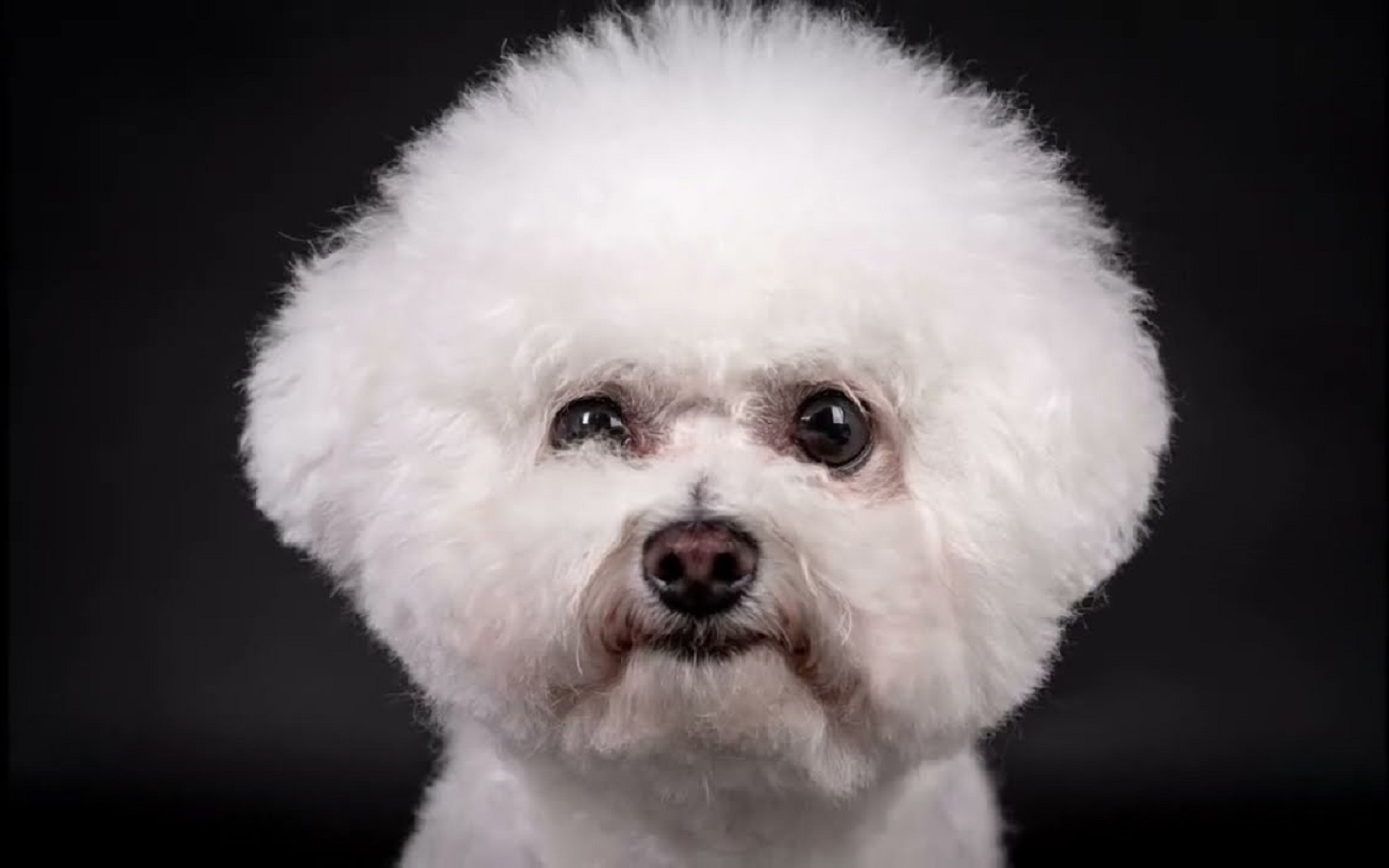
The bichon frise - what kind of animal is it?
The bichon frise is an interesting contemporary dog breed. Nonetheless, these animals are included among the oldest breeds in the world. The first mentions of these dogs come from the Canary Island. The breed was first brought to Europe in the 14th century. The dogs often appeared in royal courts, but also in circuses, where they were valued for their ability to perform tricks. The breed standard has been approved relatively late, in 1933.
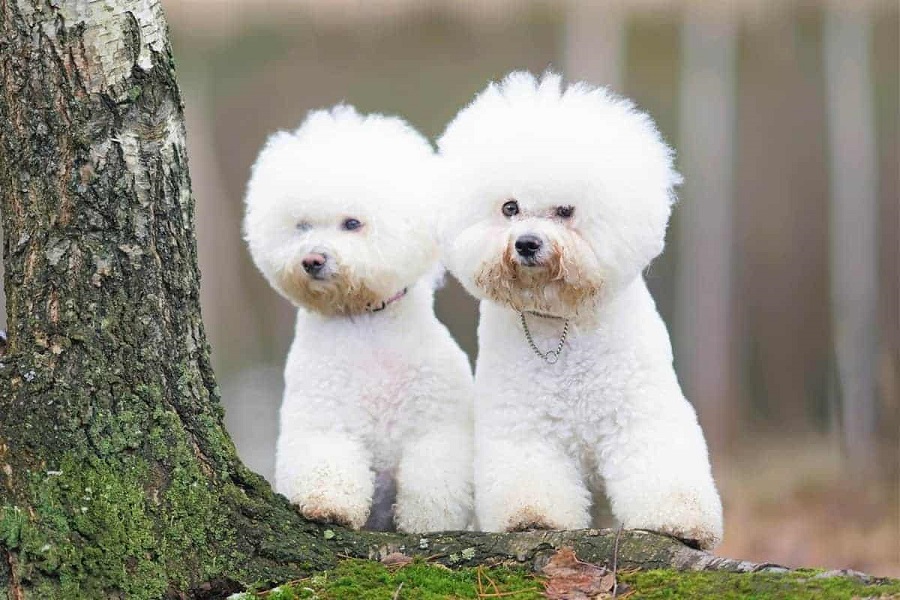
What does the bichon frise look like?
Bichon frises are medium-sized dogs. Their typical weight falls between 3 and 6 kilograms, provided the dog is fed with a proper diet. A bichon frise is usually 30 centimeters tall at withers. The dog’s body shape is ordinary, while the exceptionally white curly coat is the most prominent feature. Some dogs stand out from the standard - there are brown bichons frises.
The bichon frise - temperament
The bichon frise belongs to the group of dogs of a cheerful and energetic personality. They can learn new tricks and commands pretty quickly, while being obedient at the same time. Make sure to follow the set of rules you initially set when training the dog. Only then you can expect the dog to be well-behaved. Bichons frises are perfect family companions, they like cuddling and are kind towards family members.
Keep in mind that these dogs are very open and friendly towards strangers. Because they are small, you can take them practically everywhere with you, which is important as they don’t like loneliness. A bichon frise is not a noisy dog, it barks only when absolutely necessary and when it has a good reason.
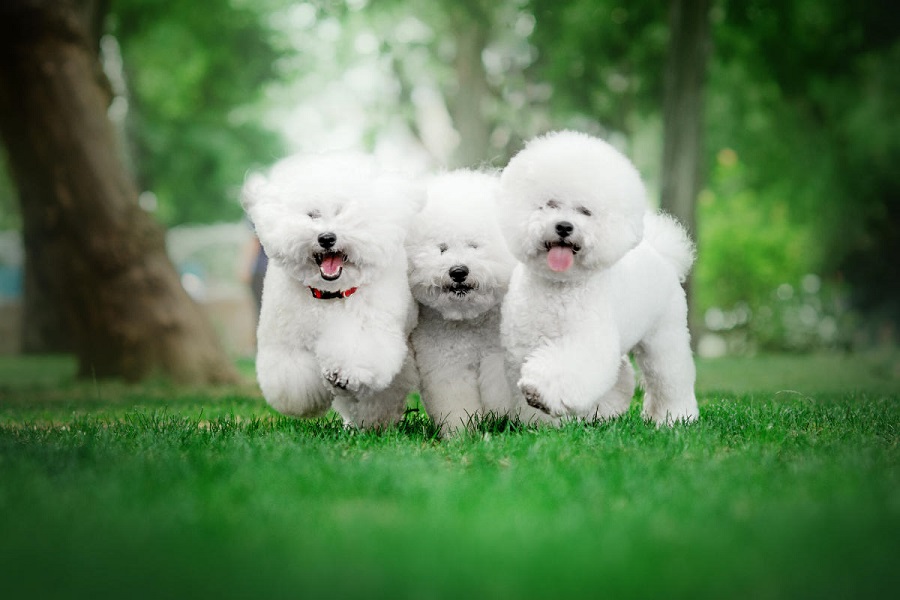
The bichon frise - who should get this breed?
A bichon frise - brown or white, is a perfect companion for everyone. It’s a perfect dog for apartments, being a calm and noiseless companion. But make sure the dog gets enough exercise - take it frequently for a walk and play with it at home.
Do bichon frises need training?
As most dogs, the bichon frise needs training - it’s a smart animal, so it can learn tricks and commands pretty quickly. But keep in mind that dogs of this breed tend to be stubborn and clever - they will get their way and use any opportunity when the owner hesitates. Because of this, a basic training is essential for such a dog. Thanks to it, the animal can learn the household’s basic rules.
What should a bichon frise eat?
The bichon frise - both a puppy and an adult dog is remarkable for its huge appetite. Make sure to follow a proper diet to supply the pet with all the nutrients it needs. The diet has to match the dog’s age. Bichon frise puppies need a different type of food from adolescent or adult dogs.
It’s possible to make homemade dog food for a bichon frise. Nonetheless, dry and wet dog food purchased at a store (after a consultation with a veterinarian) is a much more convenient solution.
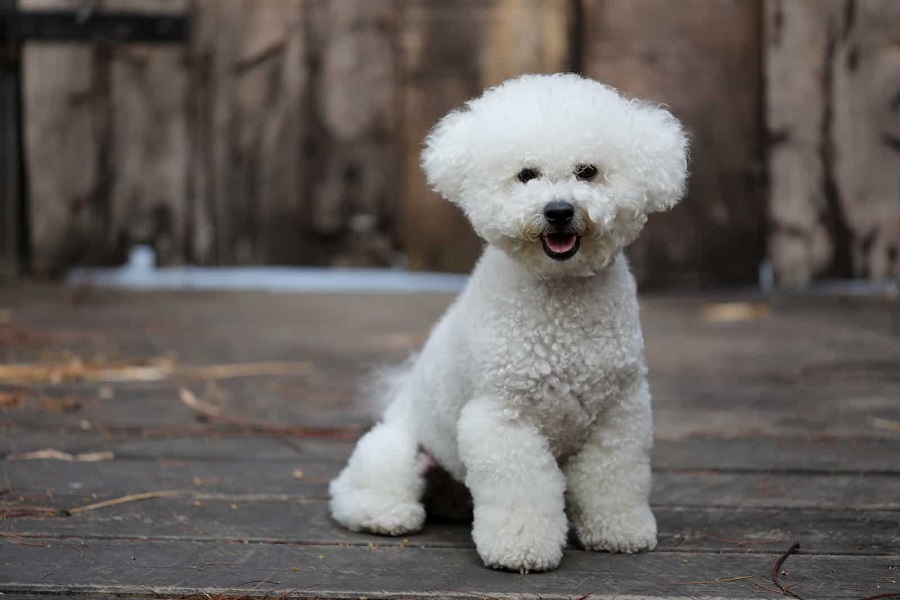
The bichon frise - grooming
The bichon frise has a specific type of hair which requires regular and thorough brushing - at least once every two weeks. Taking care of the length of the hair is also necessary. If the dog is used in dog shows, the preferred length is much longer. Visit a groomer every 2-3 months. The dog’s hair should be cut according to a certain standard accepted for this breed.
There is another advantage of these dogs’ fur - it contains almost no underfur. Thanks to this the bichon frise sheds much less than other pets.
The bichon frise - health issues
Patellar dislocation is the most common health issue dogs of this breed deal with. This affliction can be inborn or acquired - e.g. after an injury. Also, make sure to control your bichon’s health in terms of genetics - ciliary dyskinesis is a common illness of these dogs.
The bichon frise - lifespan
The bichon frise has a relatively long lifespan. If provided with good care, dogs of this breed live up to fifteen years. Of course, it’s not a rule, and the lifespan depends on other factors such as lifestyle, diet and genetic predispositions.
Bichon frise - price
A bichon frise is typically an expensive dog. Depending on pedigree, the price for a puppy varies between $600 and $2,500. A brown bichon frise is an exception, and a puppy in such a color might cost $3,000 and more.
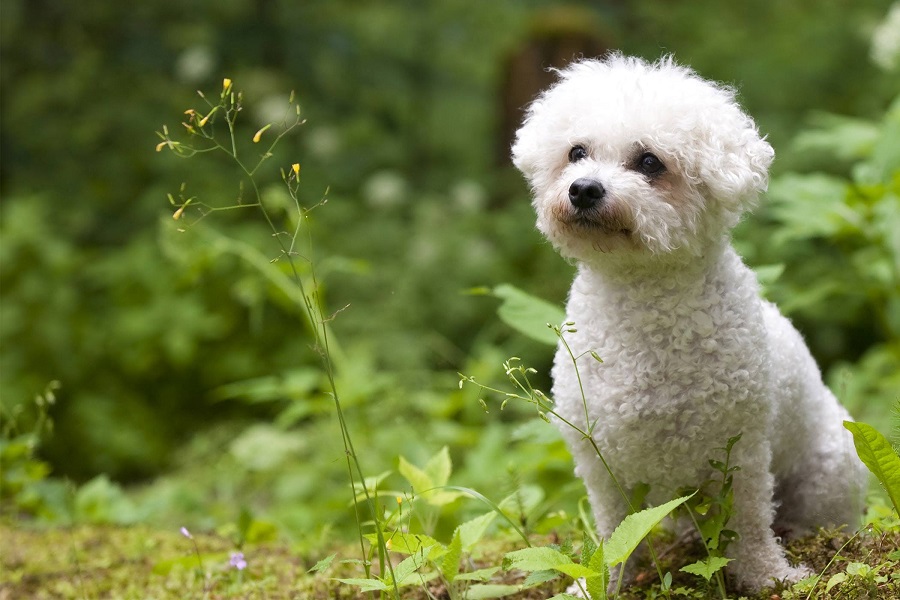
📍 How much does a bichon frise cost?
As for bichons frises - the price for a puppy varies depending on their pedigree. If you want a bichon frise puppy, prepare to pay a price between $600 and $3,000.
📍 How long do bichons frises live?
Dogs of this breed are considered long-living. The lifespan of a bichon frise varies between 12 and 15 years. Of course, it depends on the health of the dog.
📍 How to groom a bichon frise?
The bichon frise is a demanding breed in terms of grooming. Its hair grows all the time. Make sure to cut it every 6-8 weeks. Keep in mind that both dogs participating in shows, and those kept as pets can have longer coats - you can cut their hair less frequently. If so, just trim sticking out strands once a week.
📍 How much does a bichon frise weigh?
The bichon frise is not a big dog. Dogs of this breed usually weigh 6-7 kilograms. Females are lighter and weigh 4-5 kilograms. A bichon's weight strongly depends on how it's being fed.
Featured articles
Maybe you're interested

